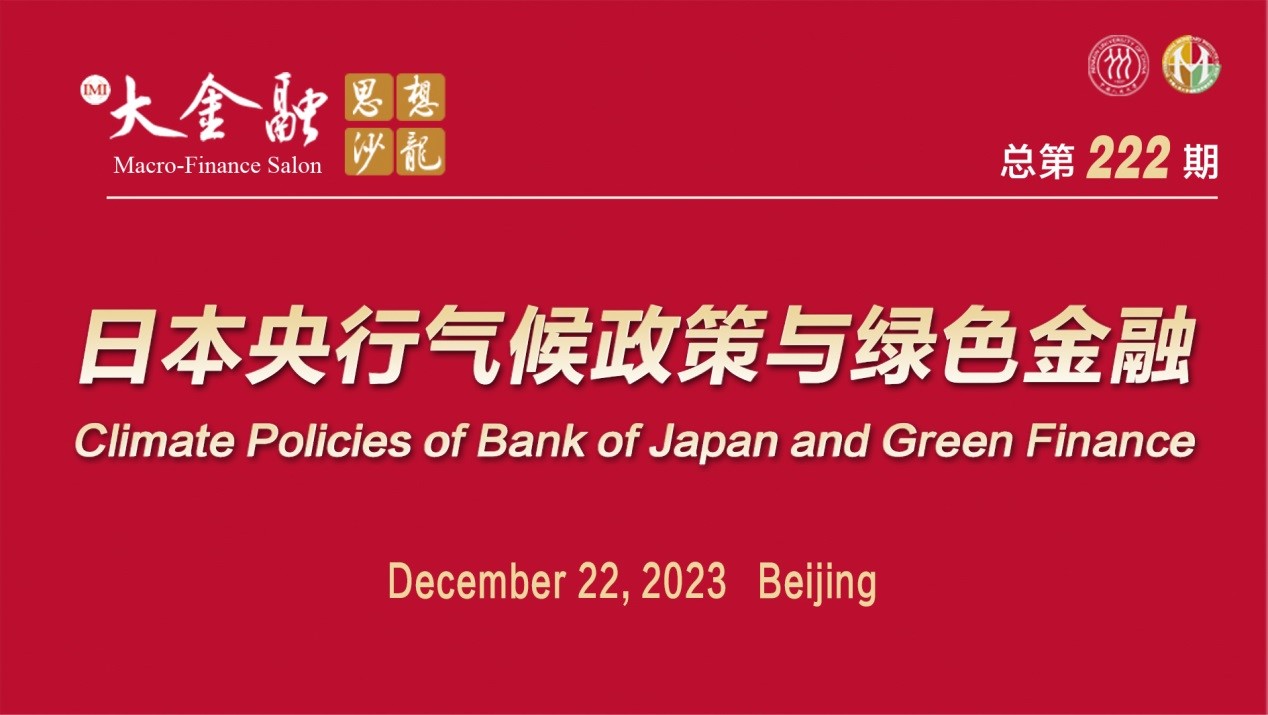Macro-Finance Salon (No. 222): Climate Policies of Bank of Japan and Green Finance
2024-01-12 IMI

On December 22, the 'Macro-Finance Salon' (No. 222), co-organized by the School of Finance and the National Finance Academy of Renmin University of China (RUC) and hosted by the International Monetary Institute (IMI) of RUC, was successfully held at Renmin University of China. Yoshiaki Azuma, Deputy Director of the Bank of Japan's International Department, delivered a keynote presentation entitled 'The Bank of Japan's strategy on the issues of climate change.' Guo Jianwei, distinguished senior researcher of Beijing Institute of Finance and Sustainability and former Editor-in-Chief of China Finance Publishing House; Lan Hong, Deputy Director of Center for Eco-finance Studies of RUC and Professor of School of Environment and Natural Resources; Li Heng, Deputy general manager of China National Building Material Green Energy Company; Zou Kunru, Assistant professor of School of Finance of RUC also participated in the discussion. The salon was presided over by Tu Yonghong, Director of the Yangtze River Economic Zone Research Institute of RUC and deputy director of IMI.
First, Mr. Azuma delivered a keynote speech, which highlighted three aspects: the financial system and climate change, the Central Bank's climate-related measures, and the Bank of Japan's strategy on climate issues.
Azuma pointed out that financial authorities and central banks have two views on the financial system and climate issues: one is how to protect the financial system effectively from climate related impact; the other is how to utilize the financial system efficiently for climate related measures. The Bank of Japan lists climate-related impacts on corporate strategy or asset pricing as factors that influence the financial system, while financial authorities and central banks have special networks to ensure financial stability and enhance financial infrastructure. Regarding central banks' climate-related measures, there are three scopes: price stability perspective, financial stability perspective, and an additional contribution as an entity of the society. In July 2021, The Bank of Japan’s Strategy on Climate Change was released, stating that 'in order to address climate change, various entities in society and the economy need to actively play their roles”. This strategy consists of measures in following five areas: monetary policy, the financial system, research, international finance, the Bank's business operations, and external communication.
In the discussion session, participants analyzed the Bank of Japan's climate policy and green finance, and the current problems and challenges in China's green finance effort. Extensive discussions were carried out on China's green finance and international cooperation, the financial issues, and carbon market and ESG investment.
Translated by Zhou Yuping
